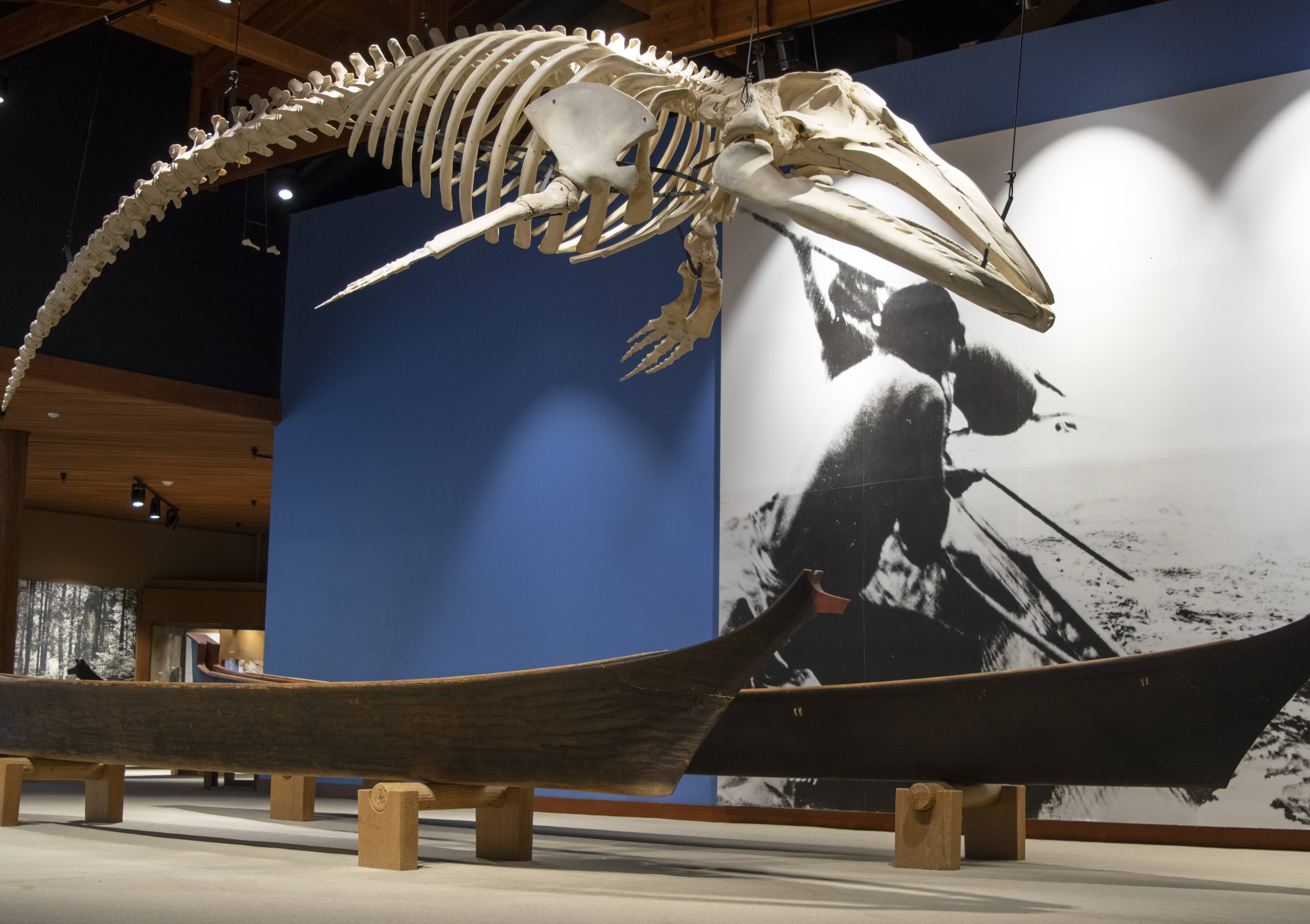
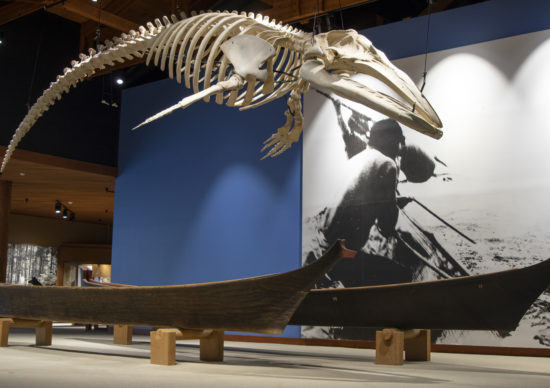
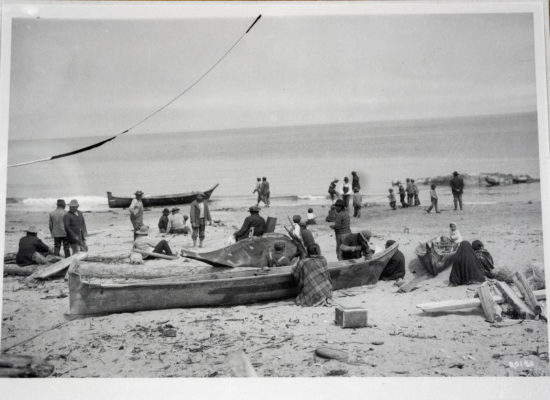
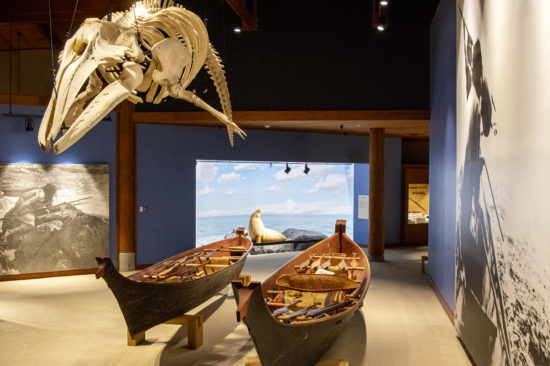
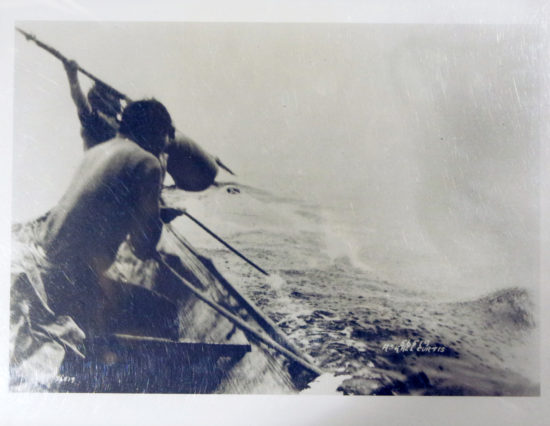
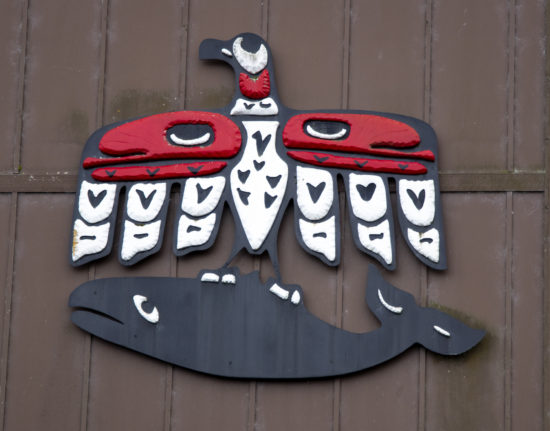
By Saki Kambe
An administrative trial in Washington State could dictate whether the Makah Tribe can be the first nation to resume whale hunt, according to the Los Angeles Times. The Makah Tribe has asked the National Oceanic and Atmospheric Administration for a waiver from the Marine Mammal Protection Act so they can restart its traditional whale hunt, harvesting up to 20 gray whales over the next 10 years. The Makah Tribe lives on the coast of the most Northwest point of the continental United States.
“When we signed the treaty with the United States government to give up a lot of our land, one of the things that we stipulated in our treaty was that we wanted to ensure that we would still have the right to whale. That’s what’s in the 1855 treaty, and we said okay, we’re going to give you our land, but we want the sea so that we can continue to whale,” Yolanda Machado, Special Advisor to Peninsula College President Luke Robins on Indigenous Affairs said. Machado is a Makah.
The Makah is the only Tribe in the world that has whaling in their treaty. Machado’s great great great grandfather is one of the people who signed the Treaty of Neah Bay in 1855 with then-Governor Isaac Stevens of Washington Territory. According to the Columbia River Inter-Tribal Fish Commission, a treaty is a contract, a binding and legal agreement, between two or more sovereign nations, and by signing treaties with Indian tribes, the United States acknowledged tribal sovereign status.
Machado comes from a whaling family, and she said that the Makah is a stratified culture, and whaling families are at the top of that social structure. She followed that whaling is not just a part of their culture, but it has been an integral part of Makah culture for hundreds of years. “Everything in the local culture is centered around whaling, the whole act of whaling,” she said.
Although whaling has been an intrinsic part of the Tribe, the Makah hasn’t been able to exercise their treaty to the fullest. The International Whaling Commission states that “the Makah Indian Tribe requests a status quo catch limit of an average of four gray whales per year, with a maximum of five gray whales in any one year.” This level was approved by the IWC in 1997, 2002, 2007 and 2012, reflecting the Tribe’s cultural and subsistence need for up to five whales per year.
It asks for one whale for each traditional Makah village, and it is based on a calculation of the per capita amount of meat, oil and blubber that five whales would provide for the community as measured by the number of Makah living on the reservation today, according to IWC. It should be noted; however, the Tribe’s hunt is subject to additional domestic legal requirements imposed by the United States. The last whale hunt was 21 years ago in 1999, after more than 70 years of prohibition.
“I’m not sure I agree with the hold-up because I think a treaty is a treaty. And if you’re not willing to allow us to whale then maybe you need to give the land back. You’re not following your end of the bargain here, that’s how I feel about this situation,” Machado said.
Machado encourages those that want to learn more about their culture to go out to the Makah Cultural and Research Center Museum. “I think if they want to know more about it, they should talk to my people,” Machado said. “It’s amazing how people that are against whaling change their tune when they hear about somebody from Makah,” she followed.
Machado will speak at the last Peninsula College’s Studium Generale presentation of the quarter March 19 at the Little Theater in the Pirate Union Building at 12:35 p.m., on her ancestry as Makah.
